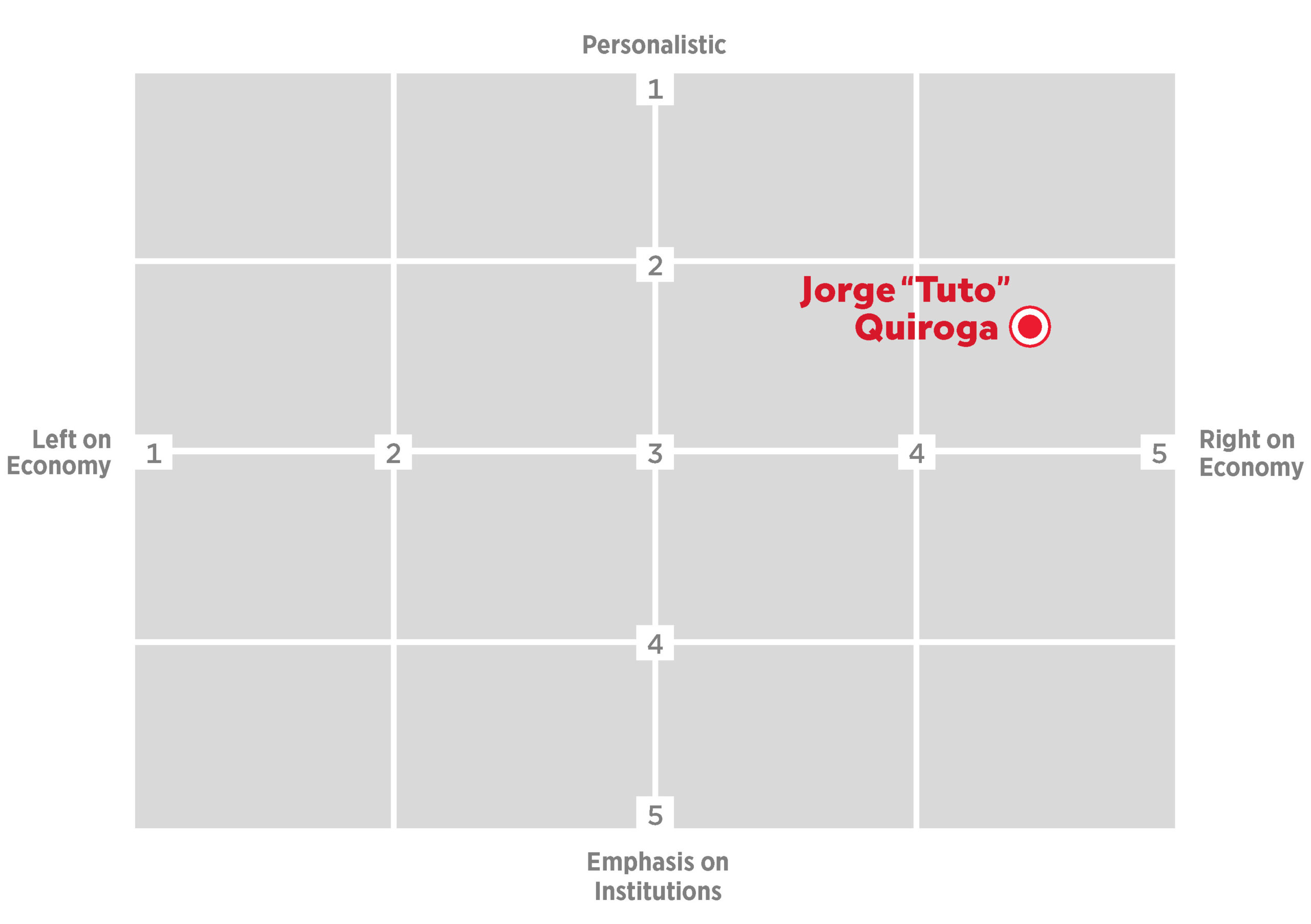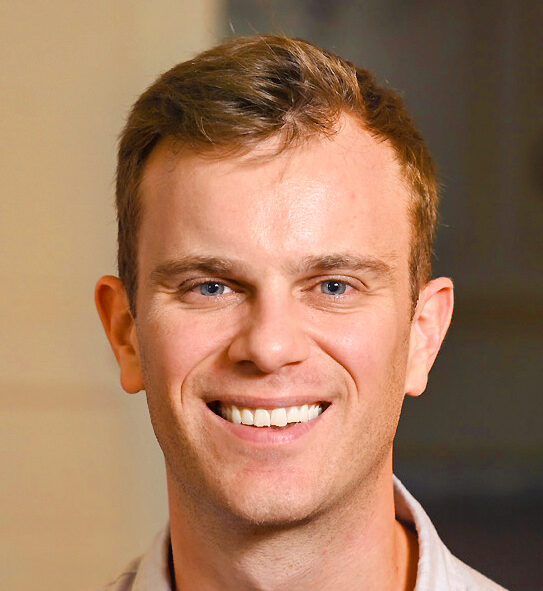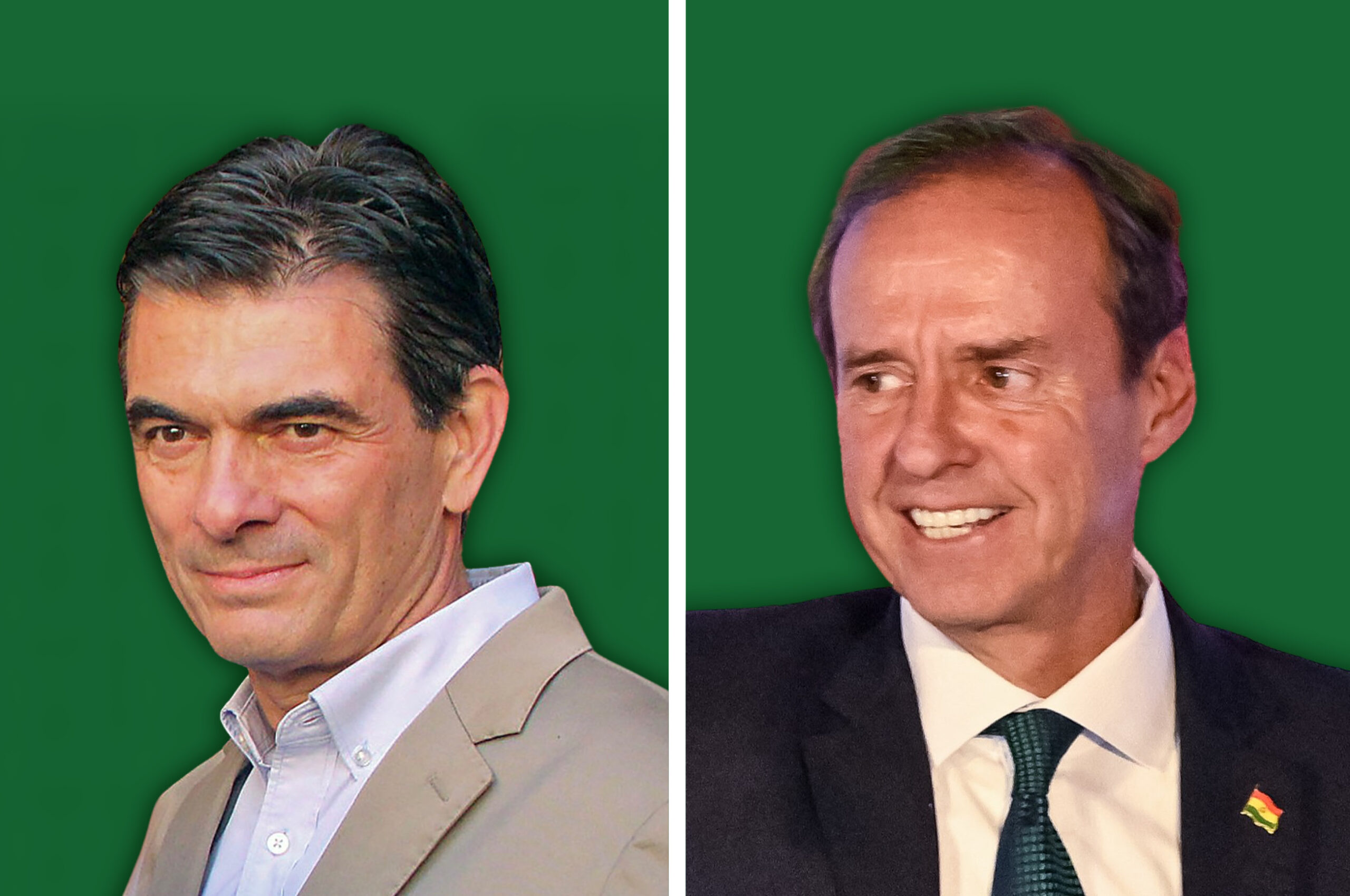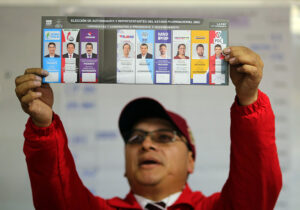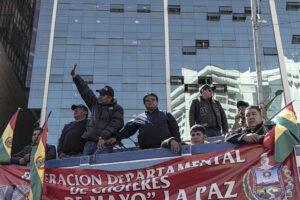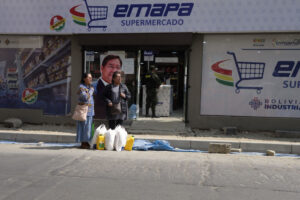This page was updated on August 18
Bolivians voted on August 17 for president, vice president, and all seats in both houses of the legislature. In the race for president, centrist Senator Rodrigo Paz Pereira obtained the highest share of valid votes with 32%, while the runner-up, former President Jorge “Tuto” Quiroga, received 27%, according to initial tallies.
The runoff election between Paz and Quiroga will take place on October 19. The results were a resounding defeat for the ruling Movimiento al Socialismo (MAS) party that had dominated the country’s politics for two decades and that will now lose its majorities in both houses of the legislature.
AQ asked a dozen nonpartisan experts on Bolivia to help us identify where each candidate stands on two spectrums: left versus right on economic matters, and personalistic versus institutionalist on leadership style. We’ve published the averages of their responses, with a caveat: Platforms evolve, and so do candidates. We will occasionally update this page to reflect developments in the campaigns.
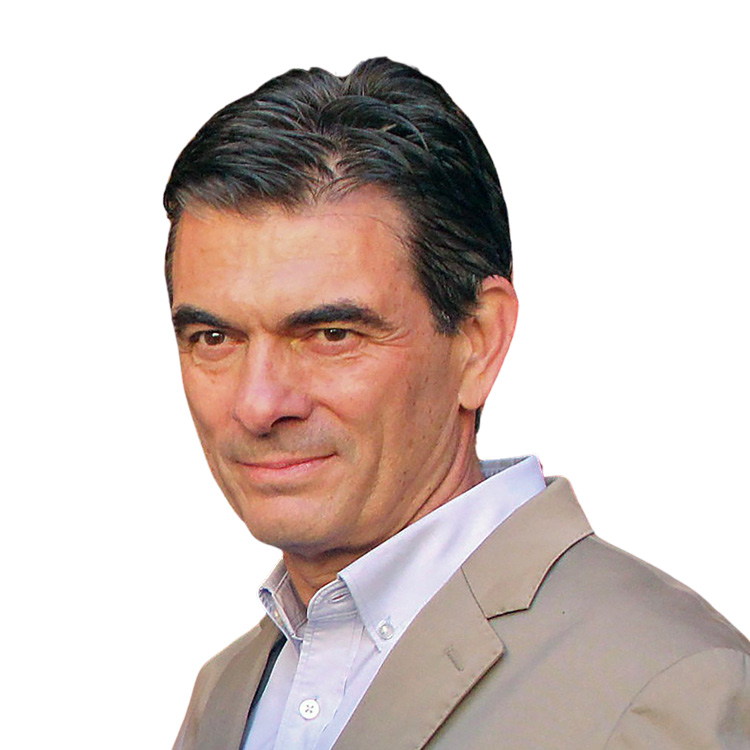
Rodrigo Paz Pereira
57, Senator
Christian Democrat Party
“Capitalism for all, not just a few.”
HOW HE GOT HERE
Paz Pereira is the son of former President Jaime Paz Zamora, a prominent opposition figure during the military dictatorships of 1964-1982. Paz Pereira was born in Spain during his father’s years in exile, and upon Bolivia’s return to democracy, his father was elected vice president and later served as president from 1989-1993. Paz Pereira, who studied economics, got his start in politics as a deputy in the legislature with the center-left MIR party, serving two terms from 2002-2010. He was mayor of the southern city of Tarija from 2010-2020, and since 2020 he has been a senator from Tarija Department.
WHY HE MIGHT WIN
Paz Pereira’s victory in the first-round vote took many by surprise. The results showed that he was able to appeal to a deeply anti-incumbent electorate by casting himself as an opponent of the MAS, but also a more moderate alternative than candidates further to the right. Paz Pereira’s running mate, former police captain Edman Lara, has also played a strong role in attracting support to the ticket. Lara is known as a police corruption whistleblower from a humble background who is especially effective in his use of social media.
WHY HE MIGHT LOSE
Third-place finisher Samuel Doria Medina, who garnered 20% of the vote, has announced his support for Paz Pereira, but it’s unclear how many of these voters will favor Paz Pereira over Quiroga. Quiroga is known as a strident critic of the MAS and its economic policies, and if the economic crisis worsens over the next two months, he may attract support as the cleanest break from the status quo.
WHO SUPPORTS HIM
Paz Pereira’s centrist messaging seems to have attracted support from voters who sought a change from the MAS but were also skeptical of candidates further to the right. This included former MAS voters as well as some right-leaning voters who were thought to support other candidates. His campaign made significant inroads with poor and middle-class voters, thanks in part to his running mate.
WHAT HE WOULD DO
Paz Pereira has said he would decentralize government in part by allowing various regions of the country to spend more of the national budget. He also promises to roll out “popular capitalism,” which would entail easier access to credit, lower taxes and streamlined taxpaying mechanisms, and slashing import tariffs. Like Quiroga, he has said he would crack down on corruption and close unprofitable public businesses, but unlike his opponent, he has said he would not request an IMF loan.
IDEOLOGY
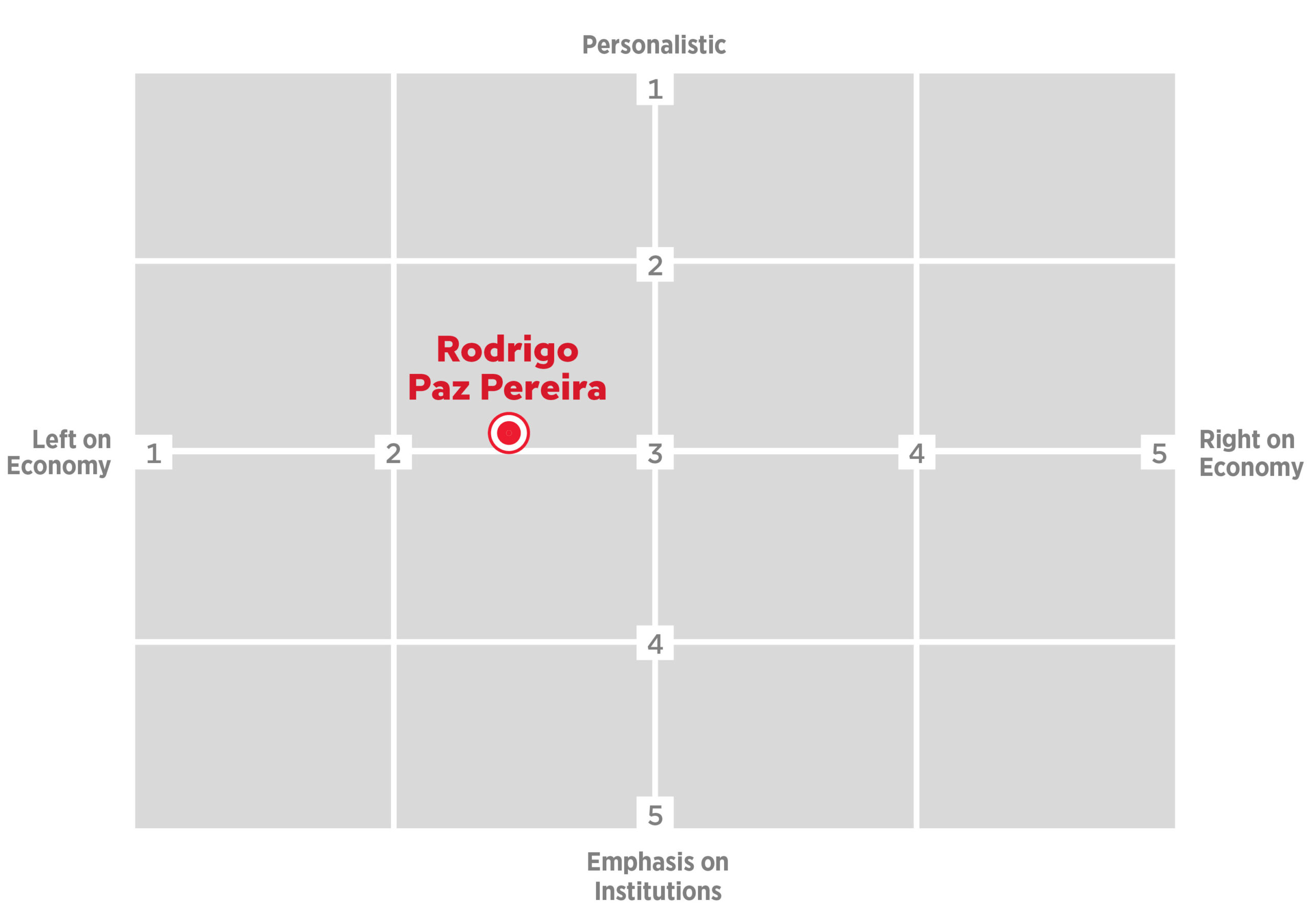
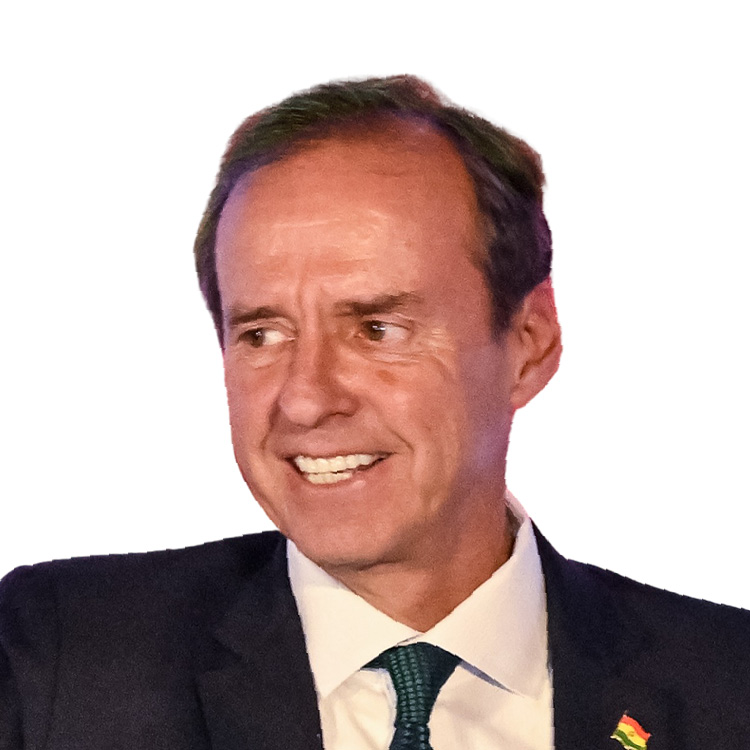
Jorge “Tuto” Quiroga
65, former president
Alianza Libre
“The first thing I will do when I get to the Palace of Government is return stability to the country.”
HOW HE GOT HERE
“Tuto” Quiroga served as president from 2001-2002, and has run for president three times before, most recently in 2020, dropping out before the election amid poor polling. He was finance minister under Zamora for eight months in 1992, and five years later, he became the country’s youngest-ever vice president in the administration of President Hugo Bánzer. Bánzer was a controversial figure who had been a right-wing military dictator from 1971, when he led a coup d’état, until he was deposed in 1978. In 2001, Bánzer resigned due to ill health, and Quiroga completed Bánzer’s term but opted not to run for reelection. He has worked for major Bolivian mining and banking firms as well as the IMF and the World Bank. He is running with the Libre coalition after leaving a broader opposition group.
WHY HE MIGHT WIN
Quiroga is the main standard-bearer for Bolivia’s right wing in this election, and he has long warned that the MAS’ economic populism would lead to the kind of fiscal and economic crunch that has come to pass. He may be able to capitalize on widespread discontent with how Arce and the MAS have handled the economy by offering the sharpest contrast to the ruling party.
WHY HE MIGHT LOSE
Quiroga didn’t gain traction when he ran for president in 2020 and may struggle to attract moderates, limiting his appeal beyond his conservative base. His close association with Bánzer and the unpopular record of Bánzer’s presidency could alienate some voters.
WHO SUPPORTS HIM
As a long-standing and vocal critic of the MAS, Quiroga is popular among the country’s most conservative voters and many of those disillusioned by the Arce government. He appeals to voters who roundly reject the MAS and its economic project, and who seek a return to pre-2005 Bolivia. Quiroga has strong support in conservative-leaning areas like Santa Cruz; from the upper classes, especially in La Paz; and among major players in the private sector.
WHAT HE WOULD DO
Quiroga would aim to dramatically shrink the government’s role in the economy and its spending. He advocates an IMF rescue package and favors stricter austerity measures than other candidates. Quiroga has also spoken of digitalizing government to make it more efficient and transparent, and said he would give every adult in the country a “popular property title” worth $1,500, as a symbolic share of the country’s natural resources that can be used to access loans.
IDEOLOGY
